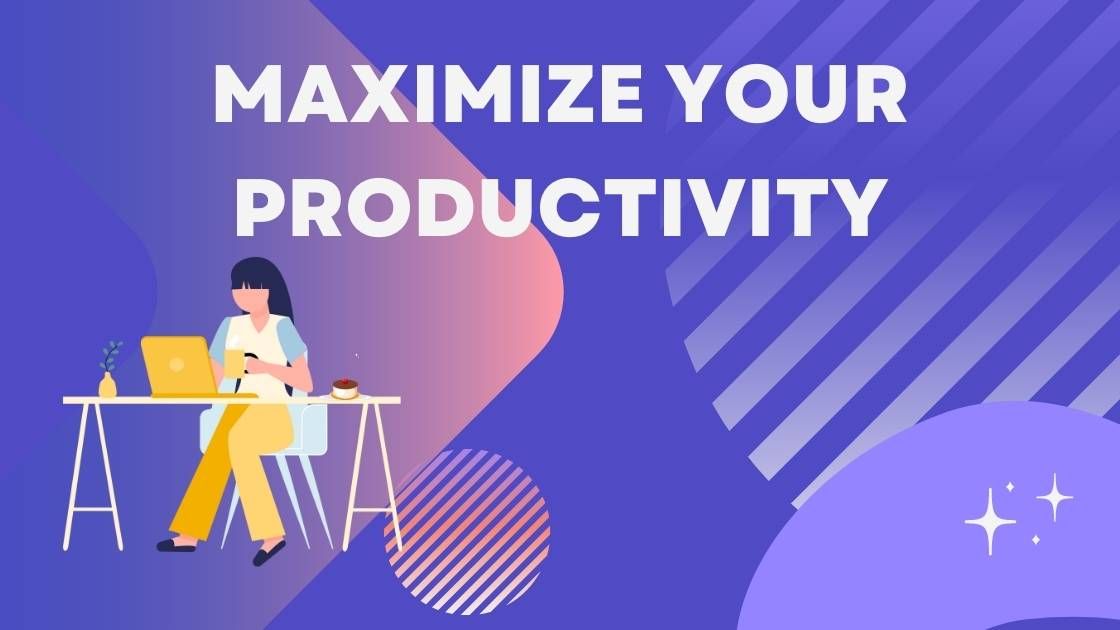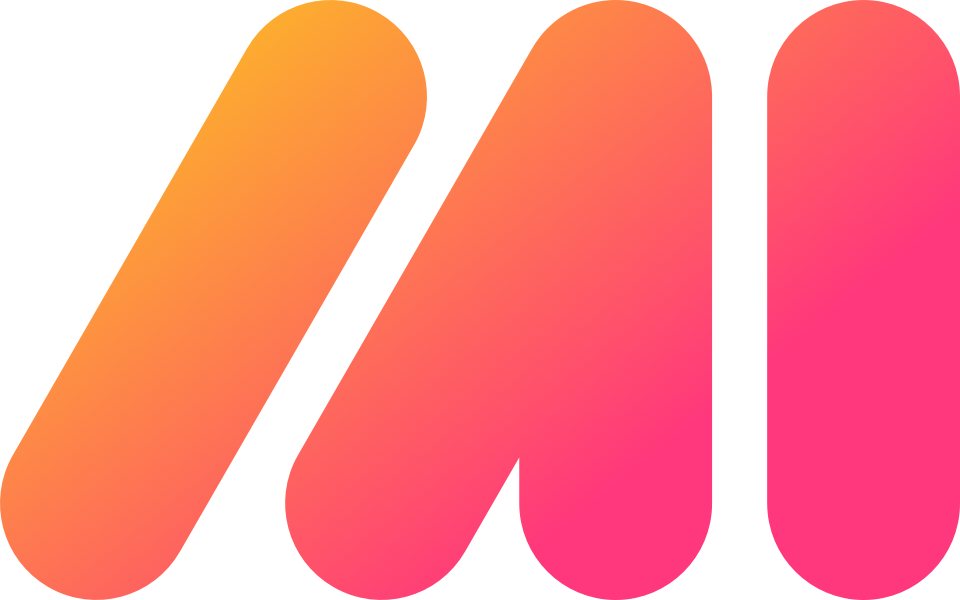Is it becoming more difficult to stay productive? With digital dopamine hits at a finger's length away, sitting down and focusing feels like a relic of the past. In fact, the average adult spends 1 hour per day on TikTok (that's an entire episode of Breaking Bad), and the statistics grow even more frightening for Gen Z. But to be fair, the modern digital landscape is meticulously engineered to prey on our most primitive vulnerabilities. I can't help that Mark Zuckerberg knows I love golden retrievers or that my favorite tennis player is Nick Kyrgios. Which begs the question, do we even stand a chance to be productive in the digital world? To put my humble opinion succinctly: of course we do. What did Plato say? "Change is the only constant."
1) Avoid Meetings Before 11AM
Productivity starts at the beginning of the day where our brains are most creative. This is a perfect opportunity to complete the most important, needle-moving tasks of your day. Cal Newport, who wrote the best-selling book Deep Work, brilliantly defines deep work as professional activities performed in a state of distraction-free concentration. We've all experienced this type of focus or "flow state" before. Whether it be when skiing, surfing, mountain biking, or hiking, our messy internal thoughts dissipate, and our mind becomes one with the present moment. Cal Newport asserts that deep work efforts are where we create new value, improve our skills, and produce results that are difficult to replicate. Conversely, Cal defines shallow work as non-cognitive, minor duties performed in a state of distraction. How many times have we mindlessly scrolled through our inbox responding to emails? Or scheduled 5 back to back meetings where very little is getting accomplished. These are examples of shallow work. And although shallow work may be necessary at times, Cal argues that you must "schedule your distractions''. Block the mornings for deep work, and block segments of your afternoon for shallow work.
2) Time Block
Let's follow up with Cal's recommendation of "scheduling our distractions" by using a technique called time blocking. The idea is simple: you carve out blocks of time in your day to work on specific tasks. This helps you eliminate distractions and focus on one thing at a time. For example, you might block out an hour to work on a project, followed by 30 minutes for lunch, and then another hour for email. Instead of scheduling events the old-fashioned way, try time blocking in Notion, a productivity tool that organizes your thoughts and ideas in one place. This helps you organize your tasks in a simple, visual format, and can even connect with your Google calendar. By time blocking the week ahead, you can remain on-task, focused, and reduce unnecessary stress in your routine.
Try Markup Hero
Ready to make amazing blogging graphics like the ones in this article?
Start using Markup Hero to take screenshots, annotate images and PDF's and become a blogging rockstar.
Signup For Free3) Try The Pomodoro Technique
Struggling to sit down and actually focus? Try to hack your attention with the pomodoro technique. This popular productivity method is a time management system in which you only work in 25 minute chunks, separated by 5 minute breaks. Each work interval is considered a pomodoro. For example, set a timer for 25 minutes, and sit down and work without distraction. After 25 minutes, take a break, stretch, walk around, and reward yourself for your productivity. After 4 pomodoros, you can take a longer 15-20 minute break. The pomodoro technique tricks our brains into working with a sense of urgency. And instead of succumbing to analysis by paralysis, the pomodoro technique breaks large, daunting projects into smaller, digestible sprints.
4) Restrict URLs
Procrastinating is easy because most of our favorite websites are just one click away: YouTube, Facebook, Twitter, etc. When we hit a mental block, it is tempting to think "hmm, let me spend a quick 5 minutes on YouTube". Before you know it, 45 minutes goes by. Luckily, removing these distractions is fairly easy. Most browsers like Google Chrome allow you to block access to URLs with a few clicks in your browser settings. There are even helpful browser extensions like Blocksite.co which allow you to temporarily block URLs while you work.
5) Exercise (Zone 2 Cardio)
Sometimes, being productive involves getting outside of your own head. One successful way of accomplishing that is with exercise, specifically Zone 2 training. Zone 2 is a form of steady-state cardio where you are exercising at low intensity for an extended period of time. For context, our body's energy systems are divided into 6 zones: Zone 1 being the lowest (e.g. walking around your house), and Zone 6 being the highest (e.g. sprinting as hard as you can). Zone 2 is an incredible sweet spot that achieves wonders for your cardiovascular health, longevity, and overall mood. To achieve Zone 2, you should be able to jog while comfortably holding a conversation. It's a very light form of cardio that activates your body's cells to their fullest capacity without exhausting the rest of your cardiovascular system. Think of it like getting the biggest bang for your buck. So instead of forcing yourself to be productive in this moment, take a break and integrate some Zone 2 training into your schedule. Then return to your workstation feeling refreshed, clear, and motivated to work.
6) Leverage Productivity Tools
In the digital age, we have plenty of productivity tools at our disposal. When it comes to content creation, project managing, and note taking, it no longer falls on the shoulders of manual labor. Instead, productivity tools can help automate, organize, and assist in speeding up the completion of repetitive tasks that eat up hours of our day. For example, if you work in social media, use a social media scheduler. If you're in project management, use a tool like Asana. Need to screenshot, annotate, and share content quickly? Use Markup Hero. Sometimes we fall into a belief system that we need to be working all hours of the day to be productive. Not true.

7) Write Down Your "Why"
Elon Musk once said, "people work better when they know what their goal is and why". As humans, we are purpose-driven beings. We need to understand the "why" behind our actions at a deep, subconscious level. Otherwise, your energy is drained, procrastination creeps in, and you’ve lost sight of what you were trying to accomplish to begin with. So take out a pencil and paper and write down the "why" behind the work in front of you. And I'm not talking about short-term reasons like "to make my boss happy". I'm speaking on your long-term why. For example:
- To achieve financial freedom
- To escape my 9 to 5
- To provide a magnificent life for my kids
- To take care of my mother
- To leave a lasting impact on society
- To progress humanity towards a brighter future
Whatever that "why" is, write it down. And I think many people who suffer from procrastination either forget their "why", or lose hope in achieving their "why". This is an exercise of remembering and re-affirming that internal belief.
8) Use The 85% Rule
The 85% rule is a productivity hack I learned while listening to Hugh Jackman on the Tim Ferriss podcast. When comparing his physical training to that of elite athletes, Hugh Jackman shared that "if you tell most A-type athletes to run at their 85% capacity, they will run faster than if you tell them to run at 100%, because it’s more about relaxation, and form, and optimizing the muscles in the right way." Think about all-star professional athletes like Steph Curry and Patrick Mahomes. There is a sense of deep calmness about the way they play. There's no sign of stress. The same mentality can be applied to the way you work. We don't need to be over-tense, stressed, and feeling rushed. In fact, these are the enemies of productivity. Instead, just aim to expend 85% of energy on work today. See what happens.
9) Train And Sprint, Rest And Reassess
The brilliant founder of AngelList, Naval Ravikant, once tweeted "forty hour workweeks are relics of the Industrial age. Knowledge workers function like athletes - train, sprint, then rest and reassess". The lesson here is to reframe the way you approach work. Evolutionary speaking, we didn't work in continuous marathons. We hunted for short periods of time and lived off the feed. We worked for a season then hibernated the next. This fundamental programming is hardwired into our DNA. Modern-day hustle culture overlooks this. Instead of trying to grind your way through a project, train and sprint, rest and reassess.
10) Let Go Of Perfectionism
Winston Churchill famously said, "perfection is the enemy of progress." Part of being productive means embracing mistakes, failures, and messiness. You're human. I'm human. And we're not going to create the perfect piece of work. It's okay to accept it. In fact, coming to this realization is a superpower because it liberates you of the internal critic. You know, the nagging voice in your head judging your every move? Accepting this reality also allows you to create minimum viable projects that can be iterated and improved. For example, a prototype is never the end product. Create a judgment-free version 1 of your work, and come back to it later with improvements.
Author Bio: Steve Gagz is an SEO & content marketing specialist based in Austin, Texas. He writes about digital marketing, content creation, and design on his website SteveGagz.com


